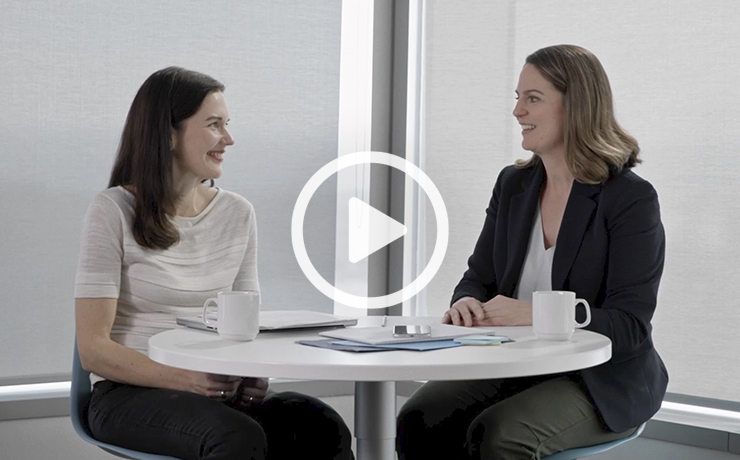Ready, Set…Taxes: Your Year-End Tax Checklist

By The Inspired Investor TeamDecember 5, 2022
Key deadlines and strategies for investors to keep in mind as 2022 comes to a close.
As 2022 comes to a close and the calendar fills up with holiday cheer, it’s easy for tax prep to fall off your radar. However, there are a few key deadlines to stay on top of, and some simple strategies that might help trim your tax bill. To help you prepare, we’ve compiled a handy checklist of dates and ideas.
Personal tax returns are based on the calendar year, which means December 31 is the last day for many, but not all, of the transactions that might impact your 2022 taxes. While you have until May 1, 2023 to officially file your individual return (June 15 for self-employed), there are other important cutoff dates along the way. Let’s look at the dates and related strategies that could help you take advantage of potential tax benefits. Some of these will apply to you, others won’t. If you’re unsure if these strategies are right for you, it’s a good idea to speak with your tax advisor.
Before December 15
Pay your quarterly tax instalments. If you received a notice from the CRA last year that quarterly tax instalment payments are required, then it’s a good idea to check the status of your payments. Your final instalments for the year generally need to be paid before December 15 to avoid being hit with interest charges for late payment.
Before December 28
Decide if tax-loss selling is right for you. If you want to take advantage of tax-loss selling, you must make your trades before December 28. Also known as tax-loss harvesting, this strategy involves selling investments (in your non-registered accounts) that are trading below your original purchase price (i.e., at a loss) in order to use the capital losses to offset capital gains you may have incurred that year. They can also be used for previous years (up to three years back) or carried forward indefinitely to future years. Saving them for future years may be worthwhile if you think your capital gains will be more significant in future years (i.e., selling a house or other assets at a profit). Don’t wait until the last day of the year to make your trades — settlement dates usually take a couple of business days after you initiate the sell.
Keep in mind that there are rules around tax-loss selling (and when you can buy back the same or identical shares, mutual funds or ETFs after you sell) and the strategy may not be right for everyone. You’ll find more details in What is Tax-Loss Selling?, but it’s always a good idea to consult with your tax advisor.
Before December 31
Donate to your favourite charities. Make your charitable donations before December 31 in order to claim the donation tax credits for 2022. Remember, donations have to be to registered charities only. And processing can take time (especially if you are donating securities or property), so it’s best to start early.
Make your RESP and RDSP contributions. To make the most of the government grants and investment growth opportunities that the Registered Education Savings Plan (RESP) and Registered Disability Savings Plan (RDSP) can provide, contribute before December 31. The grants can be a significant addition to your savings. Remember to check your contribution limits, as there are limits for both RESPs and RDSPs.
Make tax-deductible payments. Did you know that some common life expenses may be tax deductible? If you want these deductions to apply to your 2022 taxes, you have to make these payments before the end of the calendar year. A few examples include child care, applicable medical expenses, investment management fees, alimony and any deductible accounting or legal fees. If you’re not sure what you can claim, it’s a good idea to connect with your tax advisor.
Make your TFSA contributions. The TFSA contribution limit for 2022 is $6,000, and if you have unused contribution room from previous years, you can use that as well. Make sure to check your available contribution room to avoid going over the limits. You can access your TFSA contribution room details by logging into the My Account service on the CRA website or giving them a call. Learn more here.
Use up your health benefits. Okay, so this one isn’t really about taxes, but while you’re scheduling important stuff in for the last days of 2022, why not throw in a massage or an end-of-year visit to your chiropractor? If your employer offers extended health benefits, your coverage is likely tied to the calendar year. Check your balances to see if you have coverage left and make appointments or even get new glasses for the New Year.
Not year-end, but good to know…
Before January 30
Pay interest on family loans. Do you have a spousal loan? Or did you use a prescribed rate loan in 2022 for a spouse or minor child or grandchild? The government gives Canadians 30 days after the year-end to pay the interest, which means interest on family loans for 2022 is due by January 30, 2023. Keep track of the interest paid because the borrower may be able to claim a deduction for the interest on their tax return and the CRA could ask for proof of payment.
Before March 1
Make final RRSP contributions. Soon after the New Year’s Eve parties are cleaned up, you’ll probably start hearing a lot about RRSPs. This is because the deadline for RRSP contributions is March 1, 2023 if you want to claim the deductions on your 2022 taxes. Check your available contribution room and look at your finances to see how much money you can put away for your future.
Financial planning services and investment advice are provided by Royal Mutual Funds Inc. (RMFI). RMFI, RBC Global Asset Management Inc., Royal Bank of Canada, Royal Trust Corporation of Canada and The Royal Trust Company are separate corporate entities which are affiliated. RMFI is licensed as a financial services firm in the province of Quebec.
Things our lawyers want you to know
This article is intended as general information only and is not to be relied upon as constituting legal, financial or other professional advice. A professional advisor should be consulted regarding your specific situation. Information presented is believed to be factual and up-to-date but we do not guarantee its accuracy and it should not be regarded as a complete analysis of the subjects discussed. All expressions of opinion reflect the judgment of the authors as of the date of publication and are subject to change. No endorsement of any third parties or their advice, opinions, information, products or services is expressly given or implied by Royal Bank of Canada or any of its affiliates.




